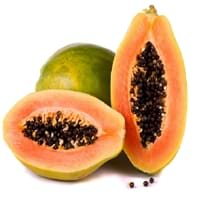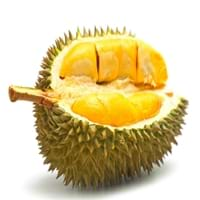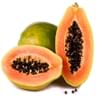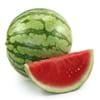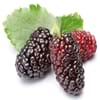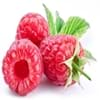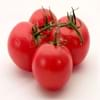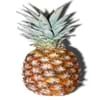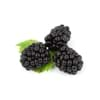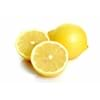Health Benefits
Arthritis prevention, Asthma treatment, Cancer prevention, Heart care, Prevents macular degeneration, Prevents rheumatoid
Anti depressant, Boosts immune system, Cancer prevention, Heart care, Reduces stress
General Benefits
Anti-inflammatory properties, Boosts immune system, Digestive aid, Healing of wounds, Maintains healthy cholesterol level, Strengthens bones
Anti oxidant properties, Anti-inflammatory properties, Boosts immune system, Controls blood pressure, Controls blood sugar levels, Digestive aid, Flu treatment, Strengthens bones
Skin Benefits
Anti-aging benefits, Hydrates skin, Skin revitalization, Treatment of acne, Treatment of dark spots
Anti-aging benefits, Brightens and lightens complexion
Hair Benefits
Good conditioner, Promotes longer and healthier hair, Softening mask, Treatment of dandruff
Promotes longer and healthier hair, Protects hair
Allergy Symptoms
Abdominal pains, Carotenemia on excessive consumtion, Latex Allergy
Diarrhea, Headaches, Hives, Nasal congestion, Red rash, Runny nose, Vomiting
Side Effects
Allergic reaction, Skin problems, Possibly unsafe during pregnancy
Affects blood glucose levels, Nausea, Stomach pain
Best Time to Eat
As a snack in the late afternoon, Don't consume at night and before bed, Don't eat after meal
Along with meal, As a snack in the late afternoon, Don't consume at night and before bed, Morning time (before lunch)
Vitamin B5 (Pantothenic Acid)
Vitamin C (Ascorbic Acid)
Vitamin E (Tocopherole)
Not Available
Vitamin K (Phyllochinone)
Not Available
Lutein+Zeaxanthin
Not Available
Calories in Fresh Fruit with Peel
Not Available
Not Available
Calories in Fresh Fruit without Peel
Calories in Canned Form
Not Available
Calories in Pie
Not Available
Type
Melon, Tree fruit
Tree fruit, Tropical
Season
All seasons
Monsoon
Varieties
Coorg Honey Dew, Pusa Dwarf, Pusa Giant, Pusa Majesty, Pusa Delicious, Pusa Dwarf, Solo, Ranchi, Taiwan-785 and Taiwan-786
D24, D99 (Gob kecil), D123 (Chanee), D145 (Beserah), D158 (Gan Yau), D159 (Monthong), D169 (Tok Litok), D188, D189, D190, D163 (Hor Lor) and D164 (Ang Bak)
Color
Orange, Yellow
Green
Inside Color
Orange
Yellow
Taste
Luscious, Sweet
Creamy, Sweet
Origin
Mexico, Central America
South-Eastern Asia
Grows on
Trees
Not Available
Soil Type
Rocky, Sandy, Well-drained
Clay
Climatic Conditions
Warm, Without frosts
Hot, Humid
Facts about
- Papaya seeds show contraceptive effects in male monkeys.
- Their seeds are used as a replacement for black pepper in some nations due to peppery taste.
- Papaya is known by funny names like paw paw or papaw and the mamao.
- 1 kg of durian contains 1350 calories which may cause weight gain.
- It may have a hyperthermic effect on the body, making you feel warmer.
- Study shows that durian has an ability to reduce infertility in men & women.
Top Producer
India
Thailand
Other Countries
Brazil, Indonesia, Mexico, Nigeria
Indonesia, Malaysia, Philippines
Top Importer
United States of America
China
Top Exporter
Mexico
Thailand
Botanical Name
Carica papaya
Durio zibethinus
Synonym
Not Available
Lahia Hassk
Subkingdom
Tracheobionta
Tracheobionta
Division
Magnoliophyta
Magnoliophyta
Class
Magnoliopsida
Magnoliopsida
Subclass
Dillenhidae
Dillenhidae
Order
Brassicales
Malvales
Family
Caricaceae
Malvaceae
Species
C. papaya
D. zibethinus
Generic Group
Papaya
Not Available
Difference Between Papaya and Durian
We might think that Papaya and Durian are similar with respect to nutritional value and health benefits. But the nutrient content of both fruits is different. Papaya and Durian Facts such as their taste, shape, color, and size are also distinct. The difference between Papaya and Durian is explained here.
The amount of calories in 100 gm of fresh Papaya and Durian with peel is Not Available and Not Available and the amount of calories without peel is 43.00 kcal and 147.00 kcal respectively. Thus, Papaya and Durian belong to Low Calorie Fruits and High Calorie Fruits category.These fruits might or might not differ with respect to their scientific classification. The order of Papaya and Durian is Brassicales and Malvales respectively. Papaya belongs to Caricaceae family and Durian belongs to Malvaceae family. Papaya belongs to Carica genus of C. papaya species and Durian belongs to Durio genus of D. zibethinus species. Beings plants, both fruits belong to Plantae Kingdom.
